6-Day Local Experience in Azores: Food, Wine & Outdoor Adventure with Friends
Azores, Portugal
6 days
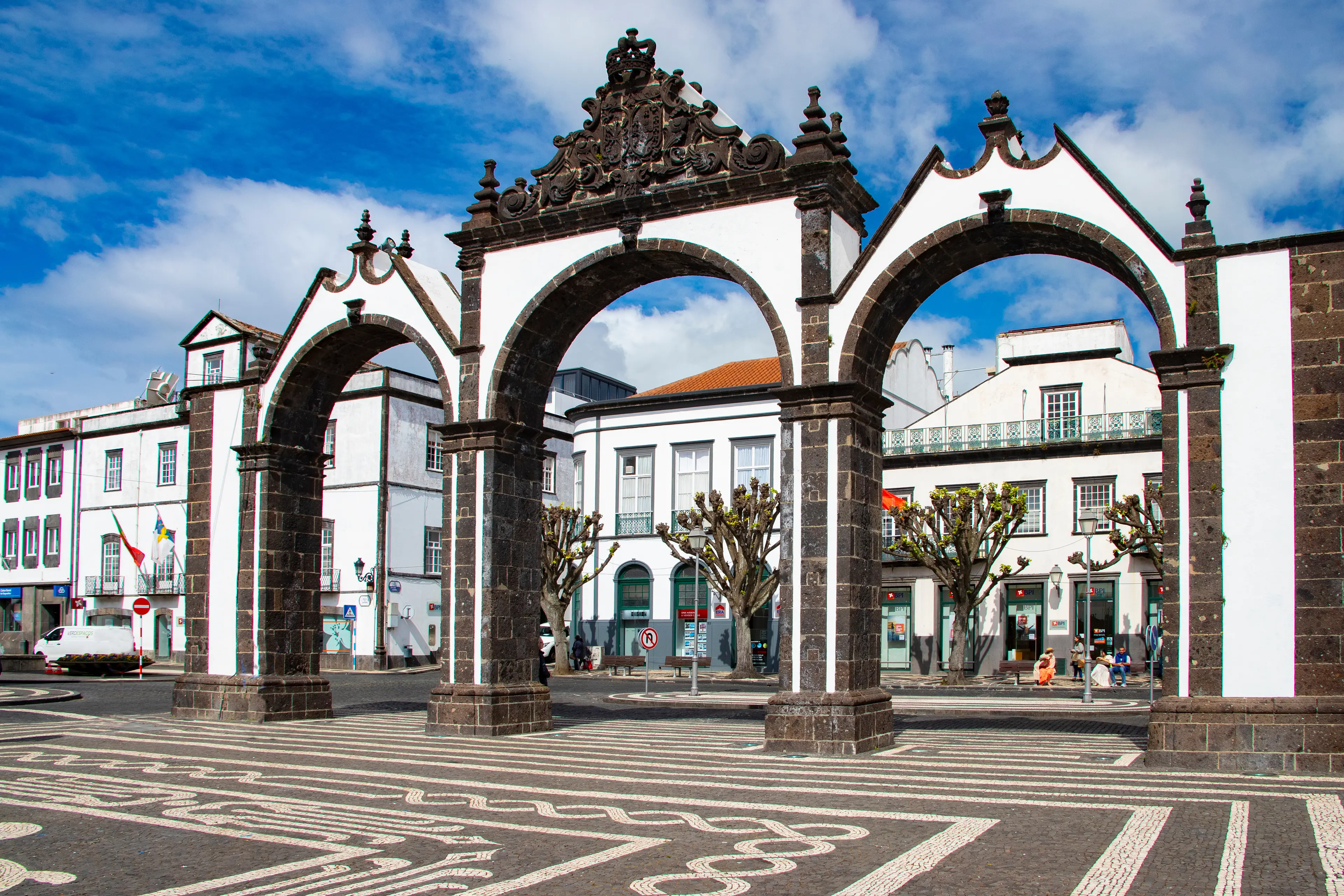

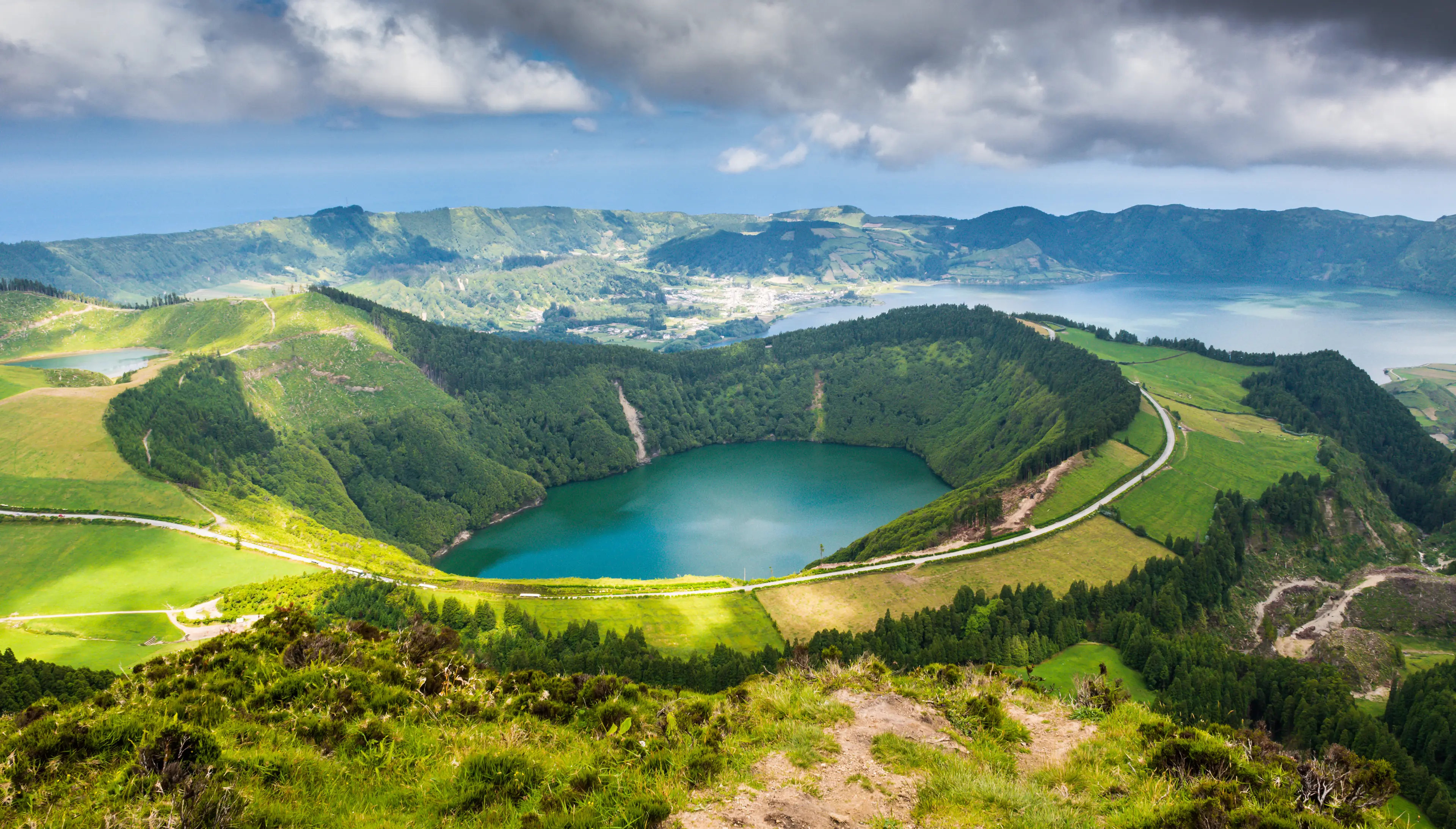
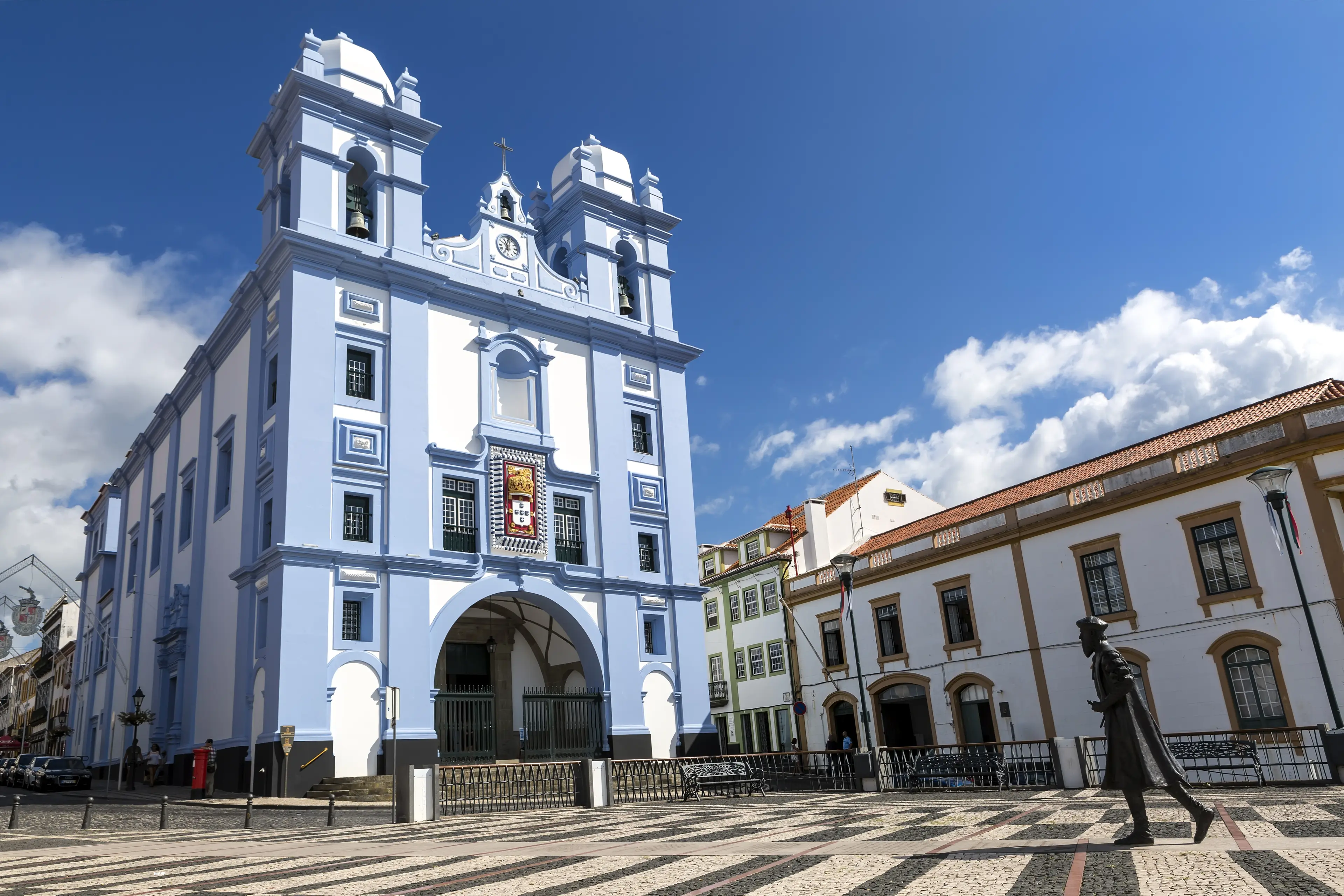
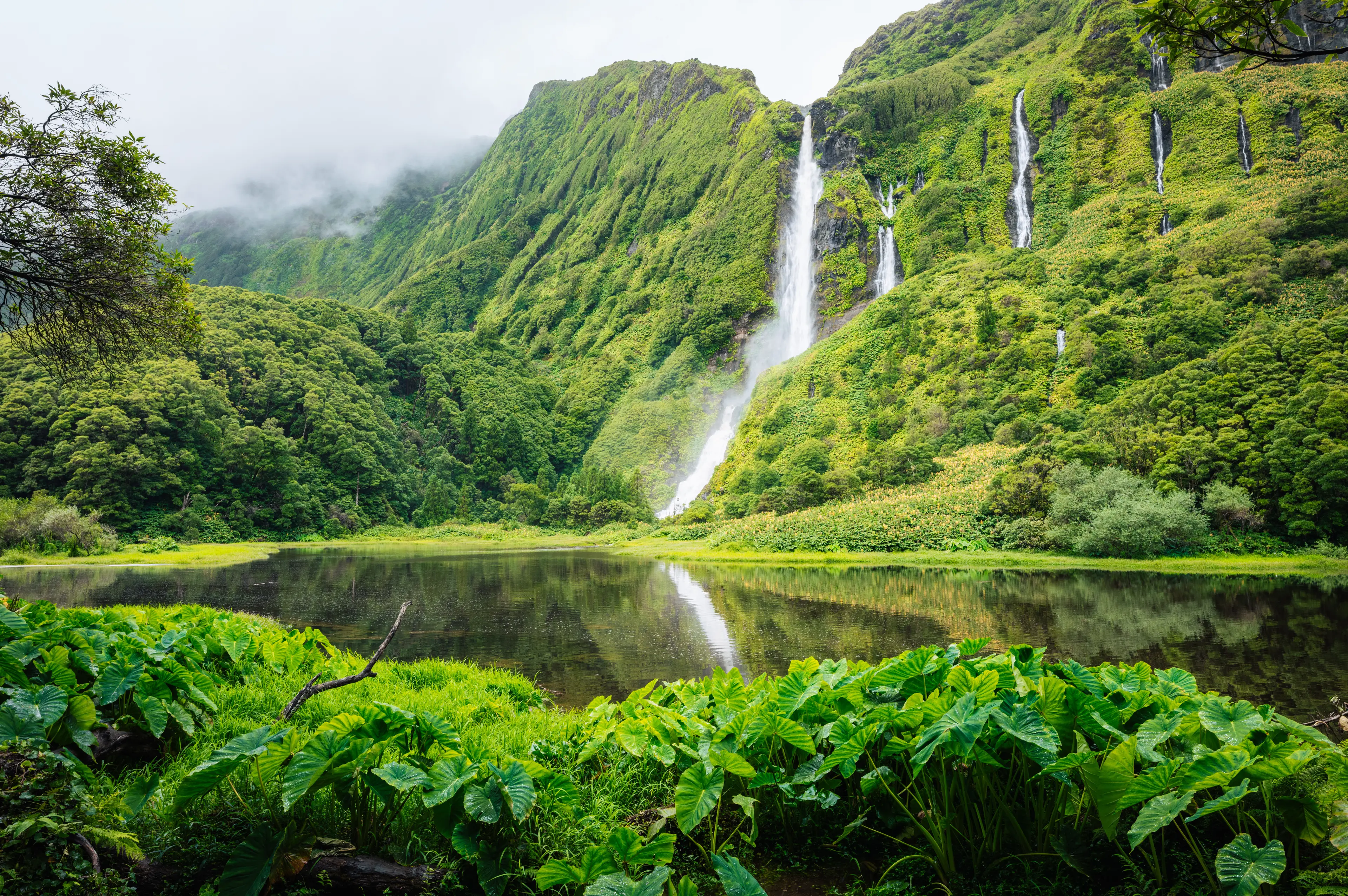
About Azores, Portugal
Discover the enchanting Azores, Portugal's hidden gem in the Atlantic Ocean. This archipelago of nine volcanic islands offers a unique blend of natural beauty, rich culture, and adventure. Explore the lush landscapes, dramatic cliffs, and serene lakes of São Miguel, or dive into the crystal-clear waters of Terceira. Experience the vibrant festivals, traditional cuisine, and warm hospitality of the locals. Whether you're hiking through the verdant trails, whale watching, or soaking in geothermal pools, Azores promises an unforgettable journey. With its UNESCO World Heritage sites, charming villages, and stunning vistas, Azores is a paradise for nature lovers and culture enthusiasts alike. Embark on a captivating journey to Azores, where every moment is a postcard-perfect memory.
6-Day Itinerary
Day 2
Tea Plantations and Nordeste Region
Morning
Start your day with a visit to the tea plantation at Gorreana Tea Factory. Here, you can learn about the tea-making process and sample some of the finest teas.
Lunch
Enjoy a picnic lunch amidst the beautiful tea plantations. Pack some local cheese, bread, and wine for a truly Azorean experience.
Afternoon
Spend the afternoon exploring the beautiful Nordeste region, known for its lush landscapes and stunning waterfalls.
Dinner
Enjoy a dinner featuring local Azorean dishes. Try the octopus stew or the grilled limpets, both local favorites.
Evening
Spend the evening stargazing. The Azores are known for their clear skies, making it a perfect place for astronomy enthusiasts.
Day 3
Whale Watching and Vineyards of Pico Island
Morning
Start your day with a Whale watching tour. The Azores are one of the best places in the world to spot these majestic creatures.
Lunch
Enjoy a seafood lunch at a local restaurant. Try the grilled fish or the seafood rice, both local favorites.
Afternoon
Spend the afternoon exploring the Vineyards of Pico Island. The unique volcanic soil here produces some of the best wines in Portugal.
Dinner
Enjoy a dinner featuring local Pico Island dishes. Try the cheese, honey, and wine, all produced on the island.
Evening
End your day with a visit to the island's observatory for some more stargazing.
Day 4
Hiking Mount Pico and Exploring Lava Tubes
Morning
Start your day with a hike to the top of Mount Pico, the highest peak in Portugal. The views from the top are breathtaking.
Lunch
Enjoy a packed lunch at the top of Mount Pico. The stunning views make for a memorable dining experience.
Afternoon
Spend the afternoon exploring the lava tubes of Gruta das Torres. These are the largest known lava tubes in Portugal.
Dinner
Enjoy a dinner featuring local Azorean dishes. Try the grilled sausage or the baked alcatra, both local favorites.
Evening
Spend the evening relaxing at your accommodation. You've earned it after a day of hiking and exploring.
Day 5
Angra do Heroismo and Natural Pools of Biscoitos
Morning
Start your day with a visit to Angra do Heroismo, a UNESCO World Heritage site. Explore the beautiful architecture and rich history of this town.
Lunch
Enjoy a traditional Azorean lunch in Angra do Heroismo. Try the alcatra, a slow-cooked beef stew, and pair it with a glass of local wine.
Afternoon
Spend the afternoon exploring the Natural Swimming Pools of Biscoitos. These volcanic pools are a unique feature of the Azores.
Dinner
Enjoy a dinner featuring local Terceira Island dishes. Try the seafood stew or the grilled limpets, both local favorites.
Evening
End your day with a traditional Azorean folk dance performance. The music and dance of the Azores are a unique blend of Portuguese and African influences.
Day 6
Volcanic Caves and Praia da Vitoria
Morning
Start your day with a visit to the Algar do Carvao, a unique volcanic cave. Explore the stalactites and stalagmites formed by volcanic activity.
Lunch
Enjoy a picnic lunch at the Monte Brasil nature reserve. The reserve offers stunning views of the island and the surrounding ocean.
Afternoon
Spend the afternoon exploring the charming town of Praia da Vitoria. Visit the local shops and enjoy the beautiful beach.
Dinner
Enjoy your last dinner in the Azores at a local restaurant. Try the grilled fish or the seafood rice, both local favorites.
Evening
End your trip with a relaxing walk along the beach. Reflect on your amazing journey and the memories you've made.
Attractions in Itinerary (14)
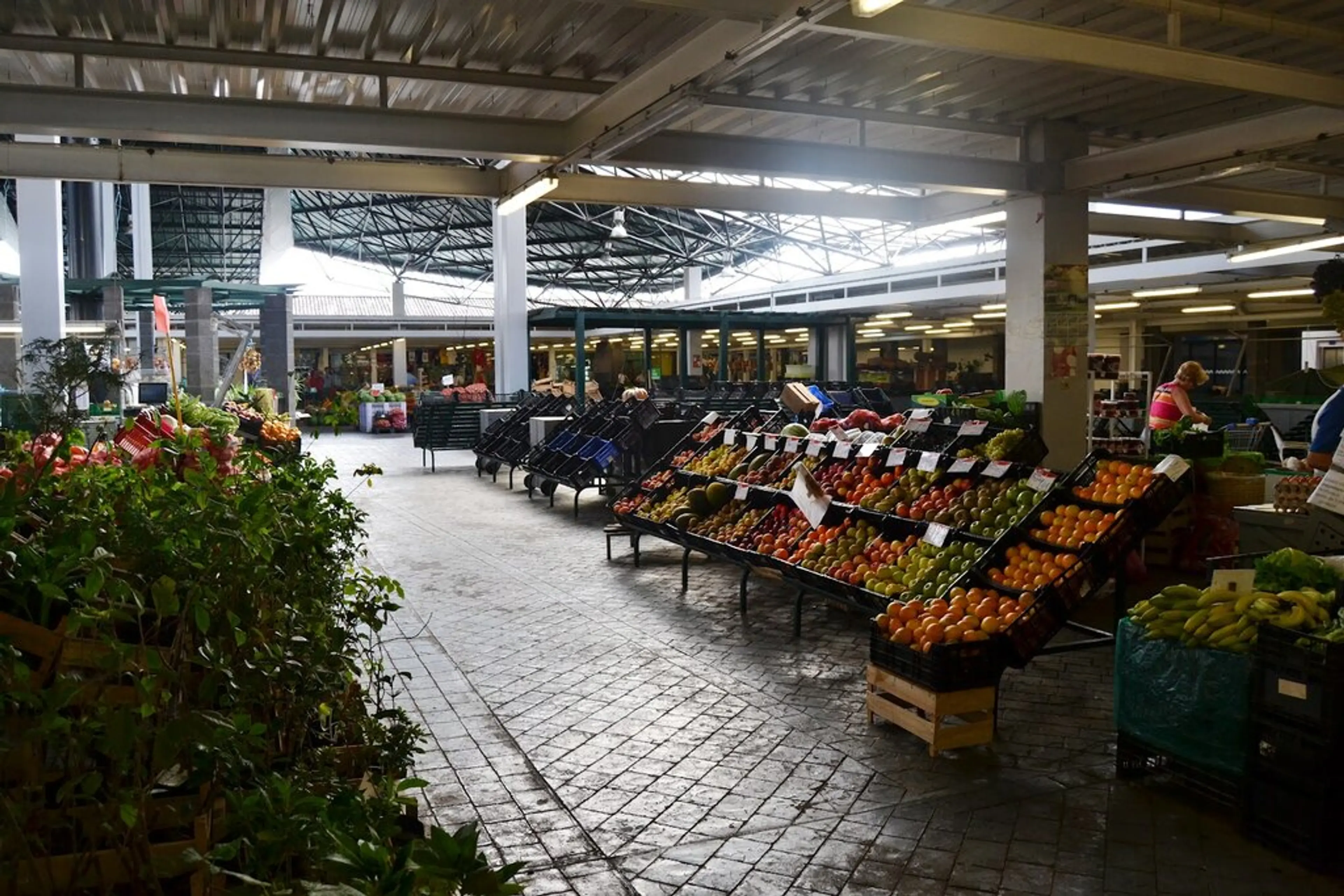
1Local market
A bustling market where you can buy local produce, traditional crafts, and enjoy local cuisine.
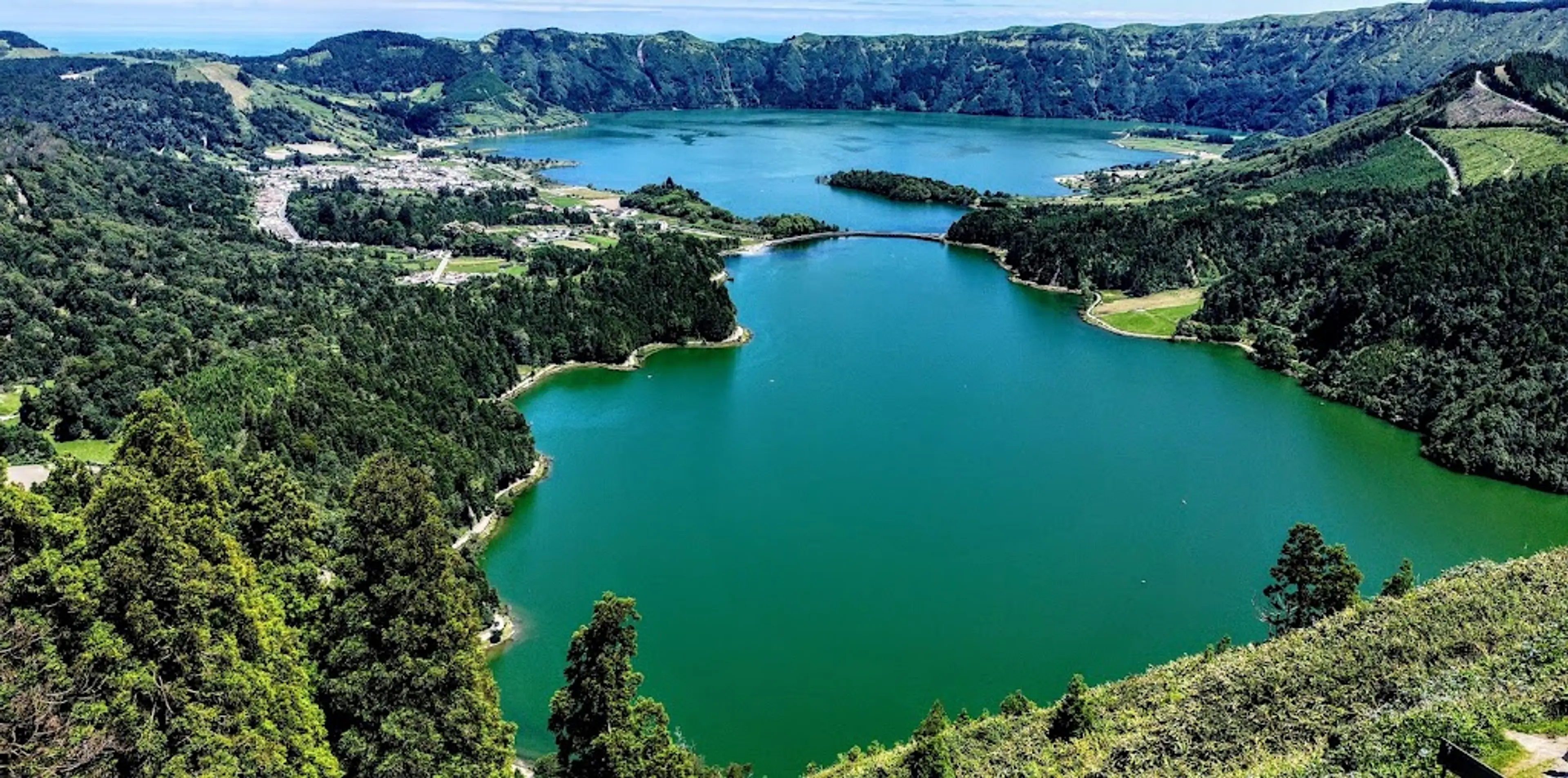
2Sete Cidades Lake
A beautiful twin lake situated in the crater of a dormant volcano, offering stunning views and hiking trails.
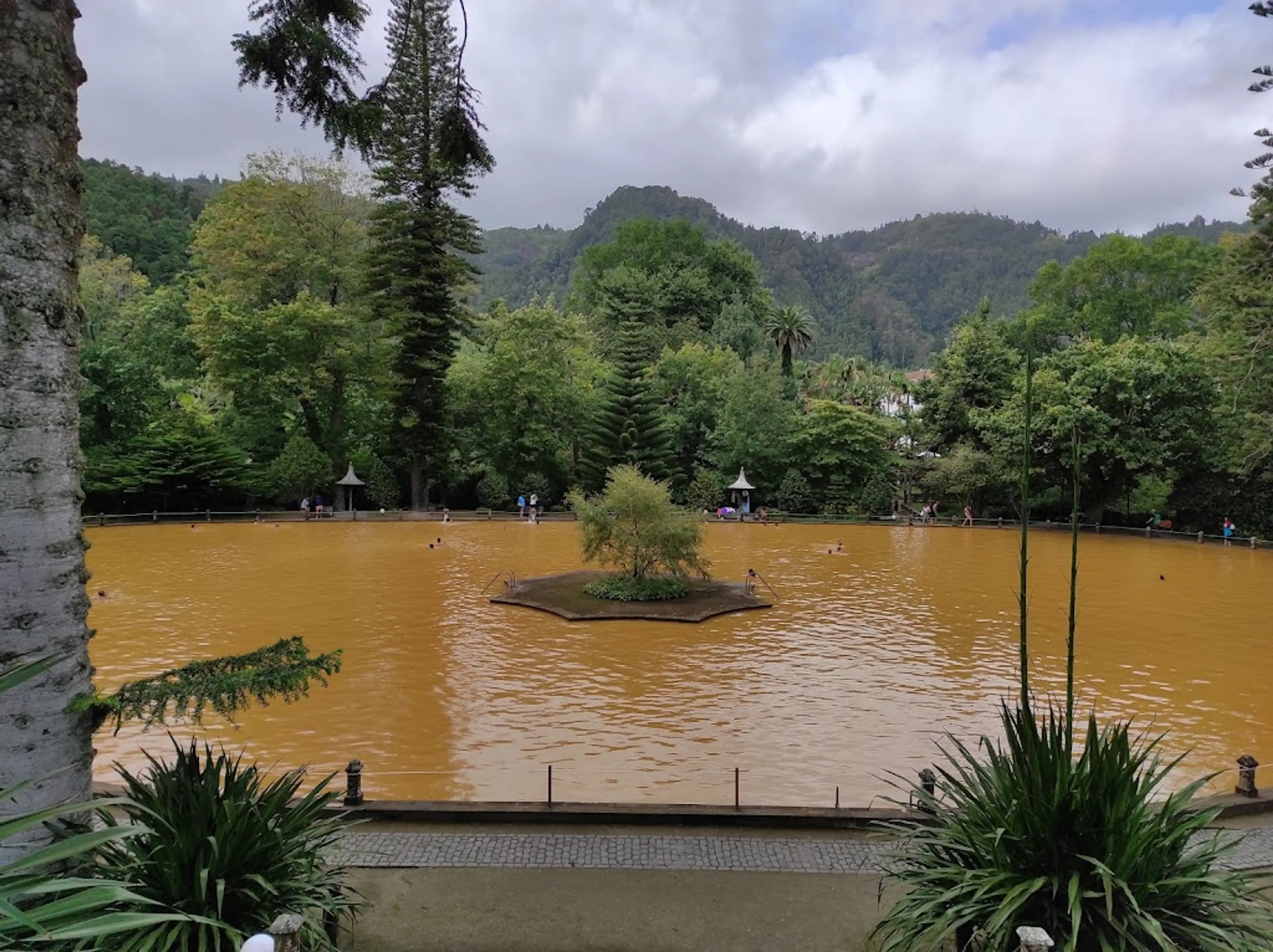
3Terra Nostra Park
A beautiful botanical garden located in the Furnas Valley, known for its thermal pool and diverse flora.
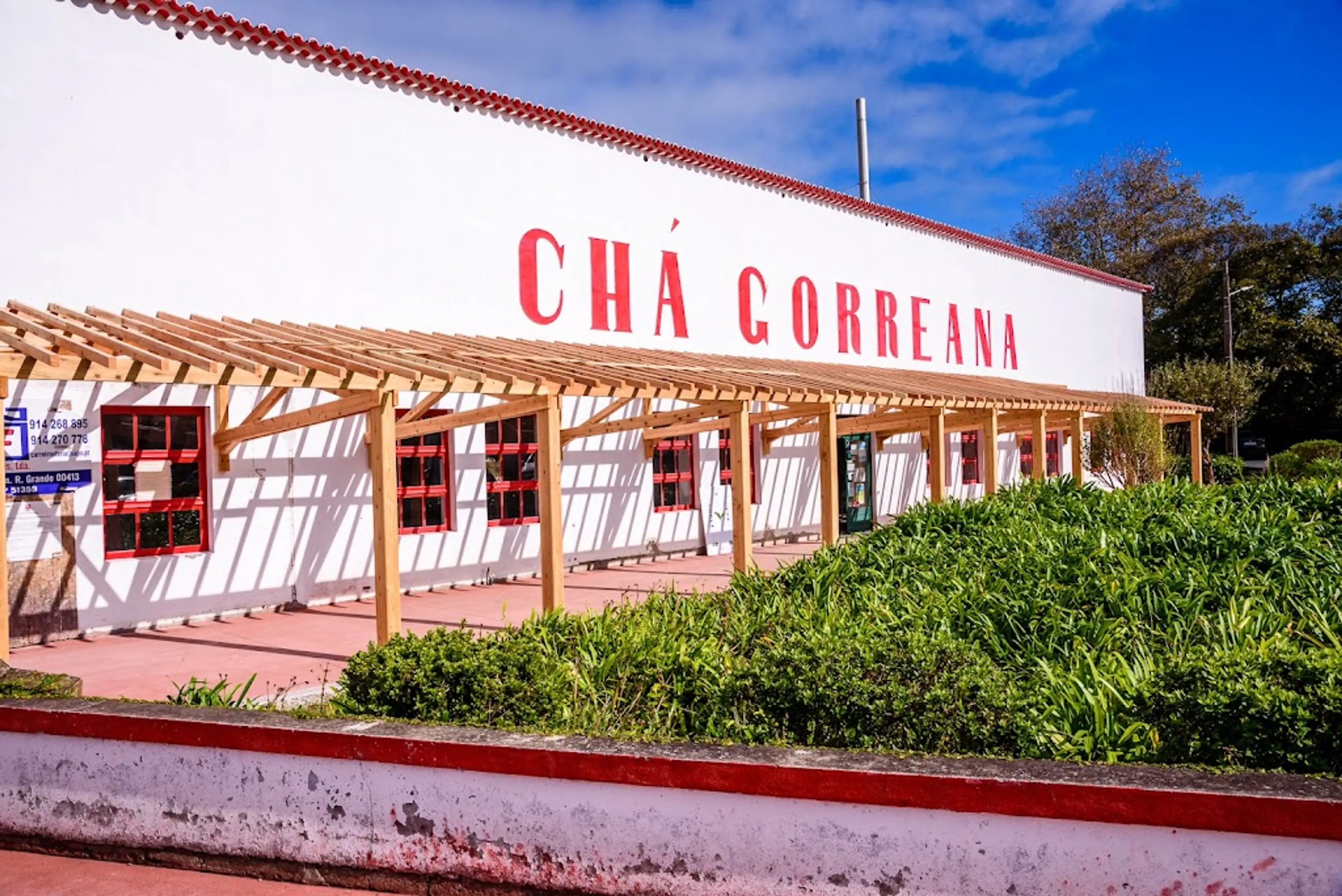
4Gorreana Tea Factory
Europe's oldest tea plantation, offering tours and tastings.

5Nordeste region
A picturesque region known for its rugged coastline, waterfalls, and beautiful gardens.
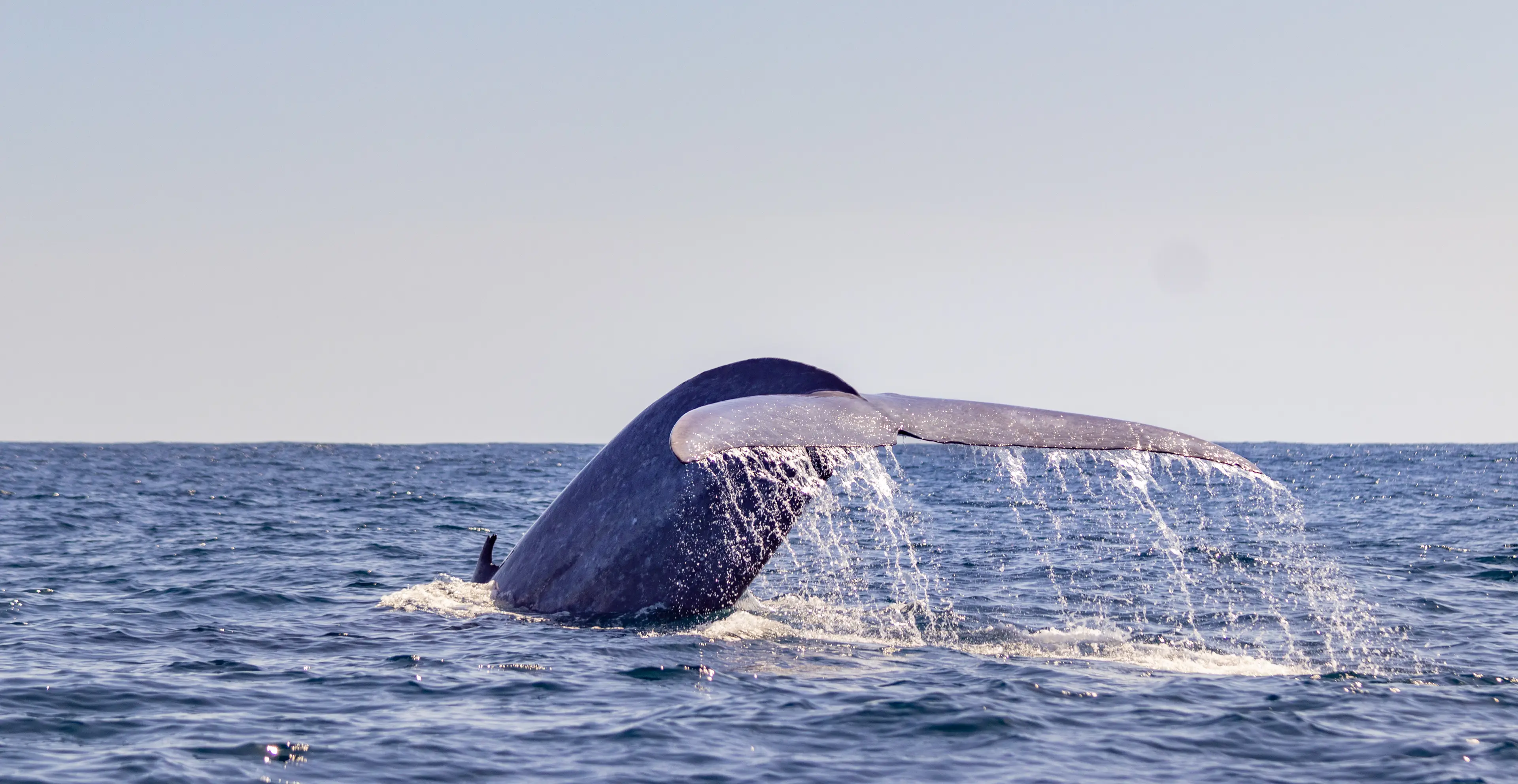
6Whale watching tour
An exciting tour offering the chance to see whales and dolphins in their natural habitat.
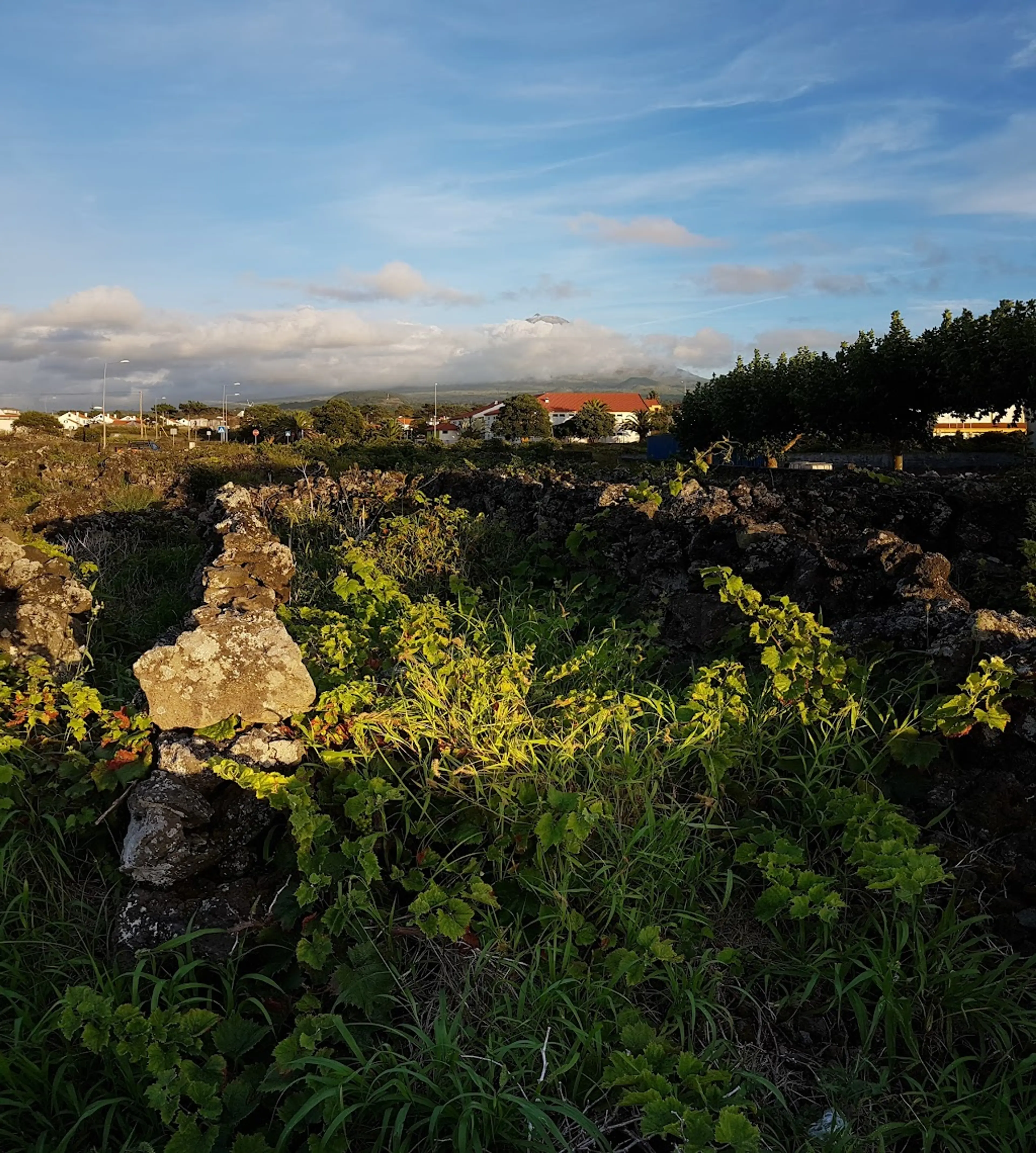
7Vineyards of Pico Island
A UNESCO World Heritage site, these unique vineyards are grown in volcanic soil.
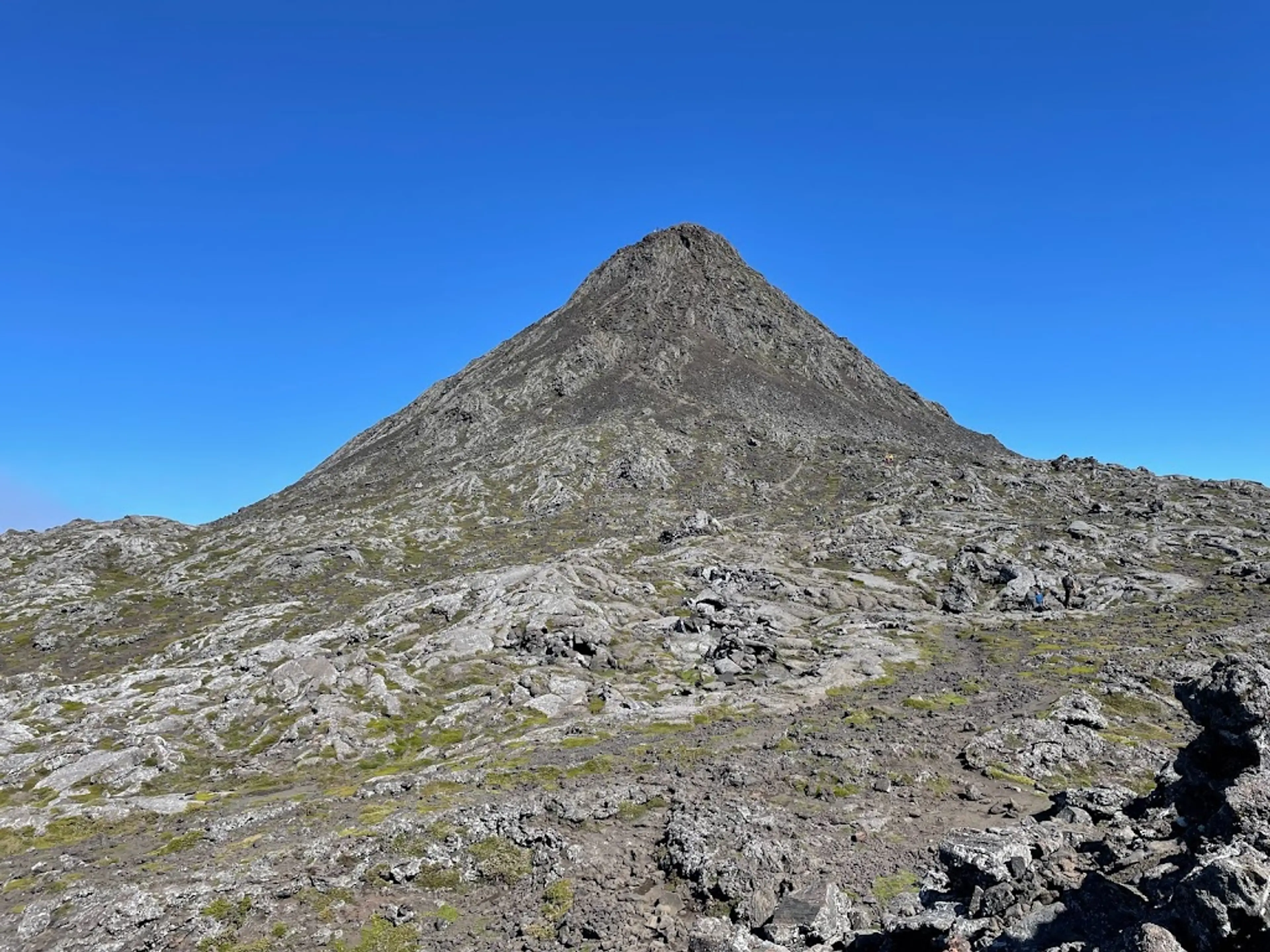
8Mount Pico
The highest mountain in Portugal, offering hiking tours and breathtaking views of the surrounding islands.
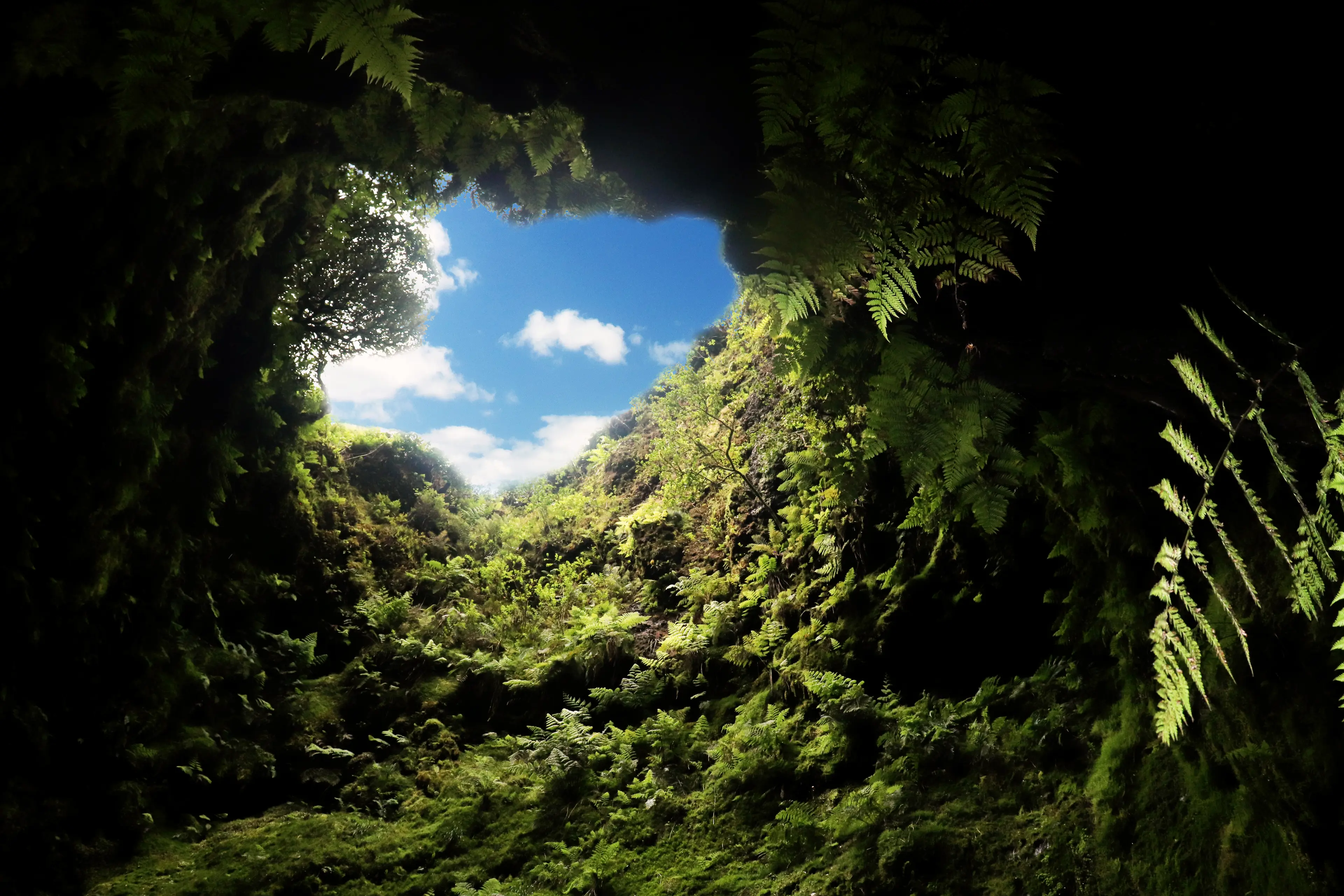
9Gruta das Torres
The largest lava tube in Portugal, offering guided tours for visitors.

10Angra do Heroismo
A UNESCO World Heritage site, this town offers beautiful architecture, historical monuments, and a rich cultural experience.
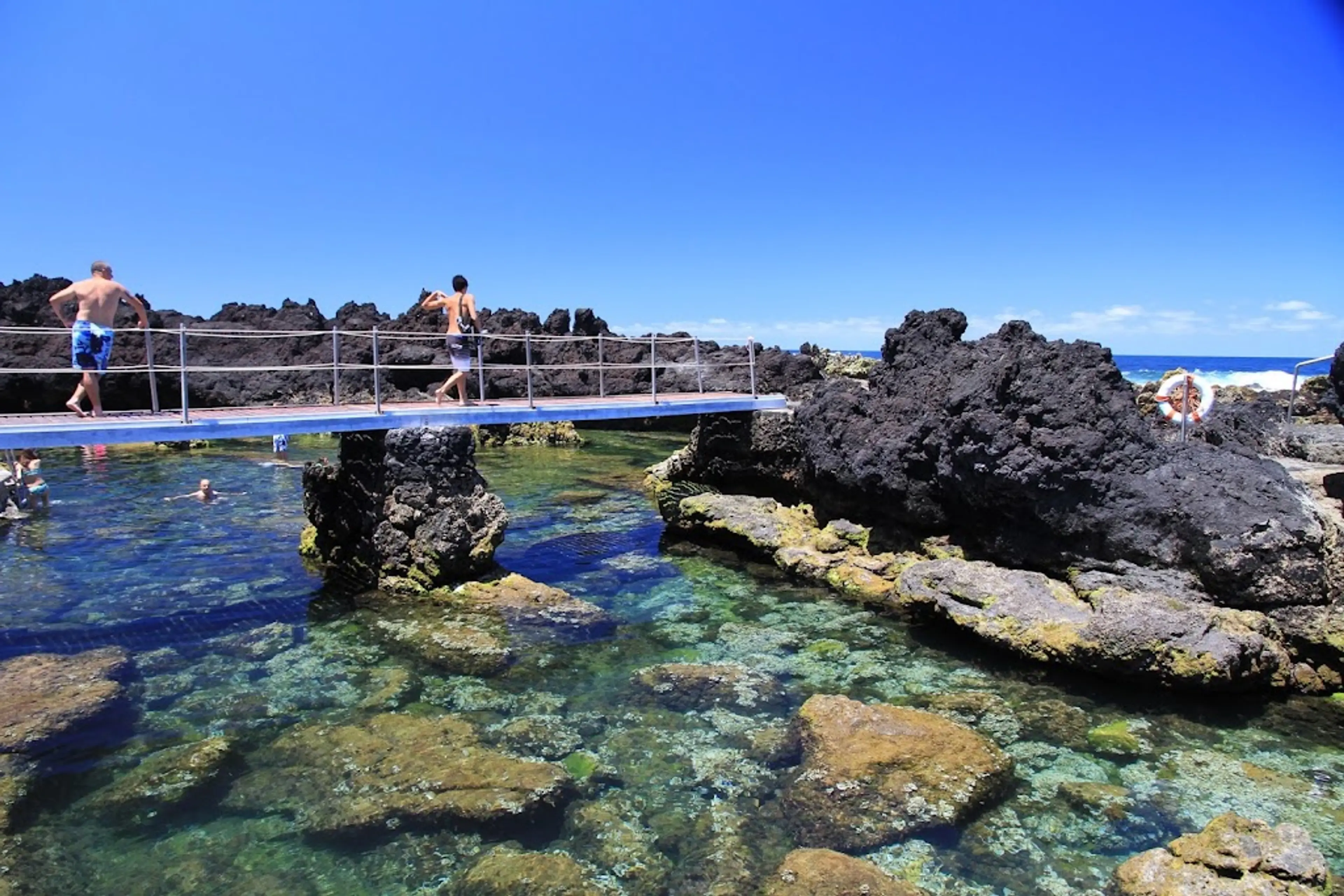
11Natural Swimming Pools of Biscoitos
Natural volcanic rock pools that are perfect for swimming.
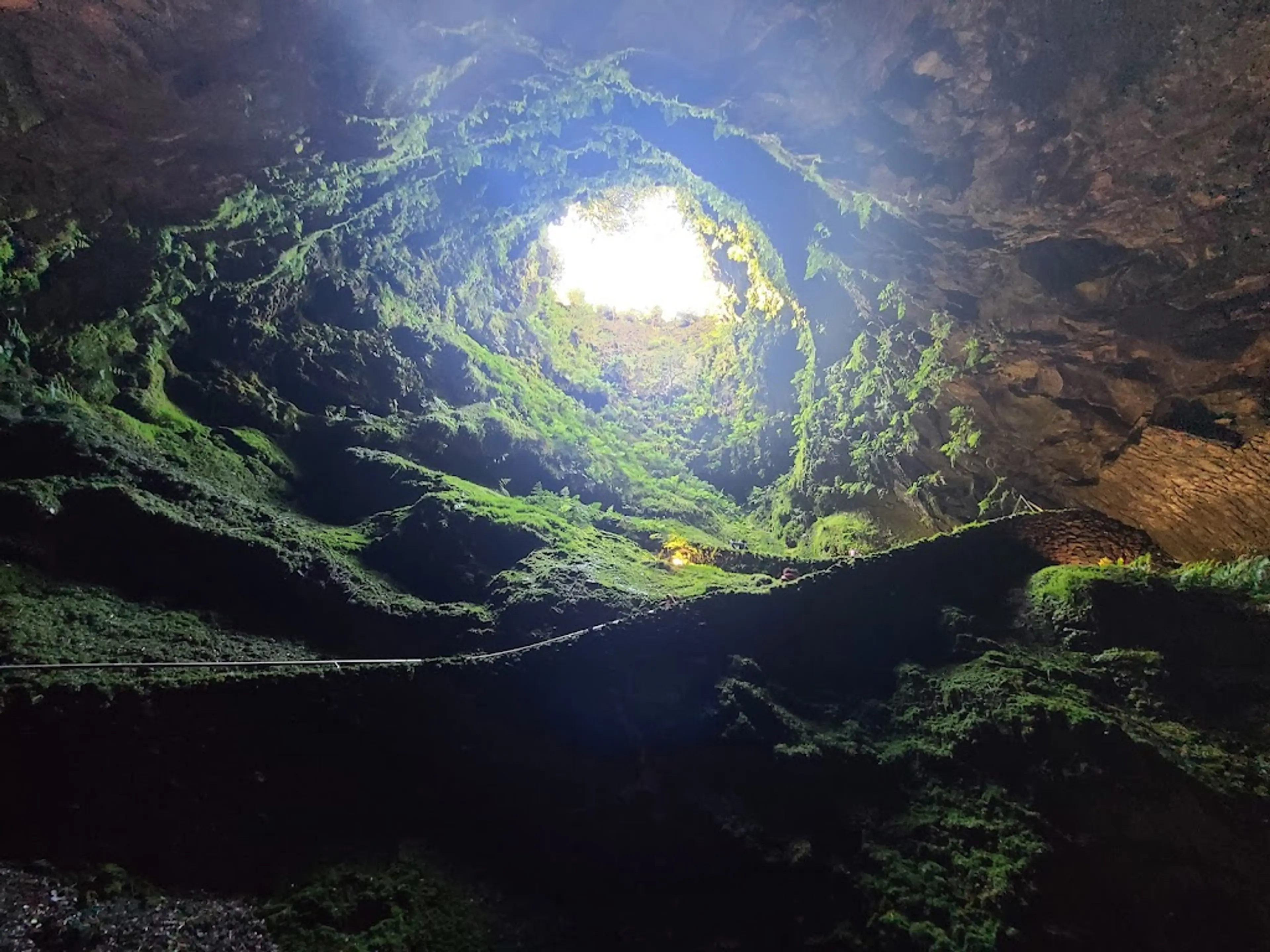
12Algar do Carvao
An ancient lava tube that you can explore, featuring stalactites and stalagmites.
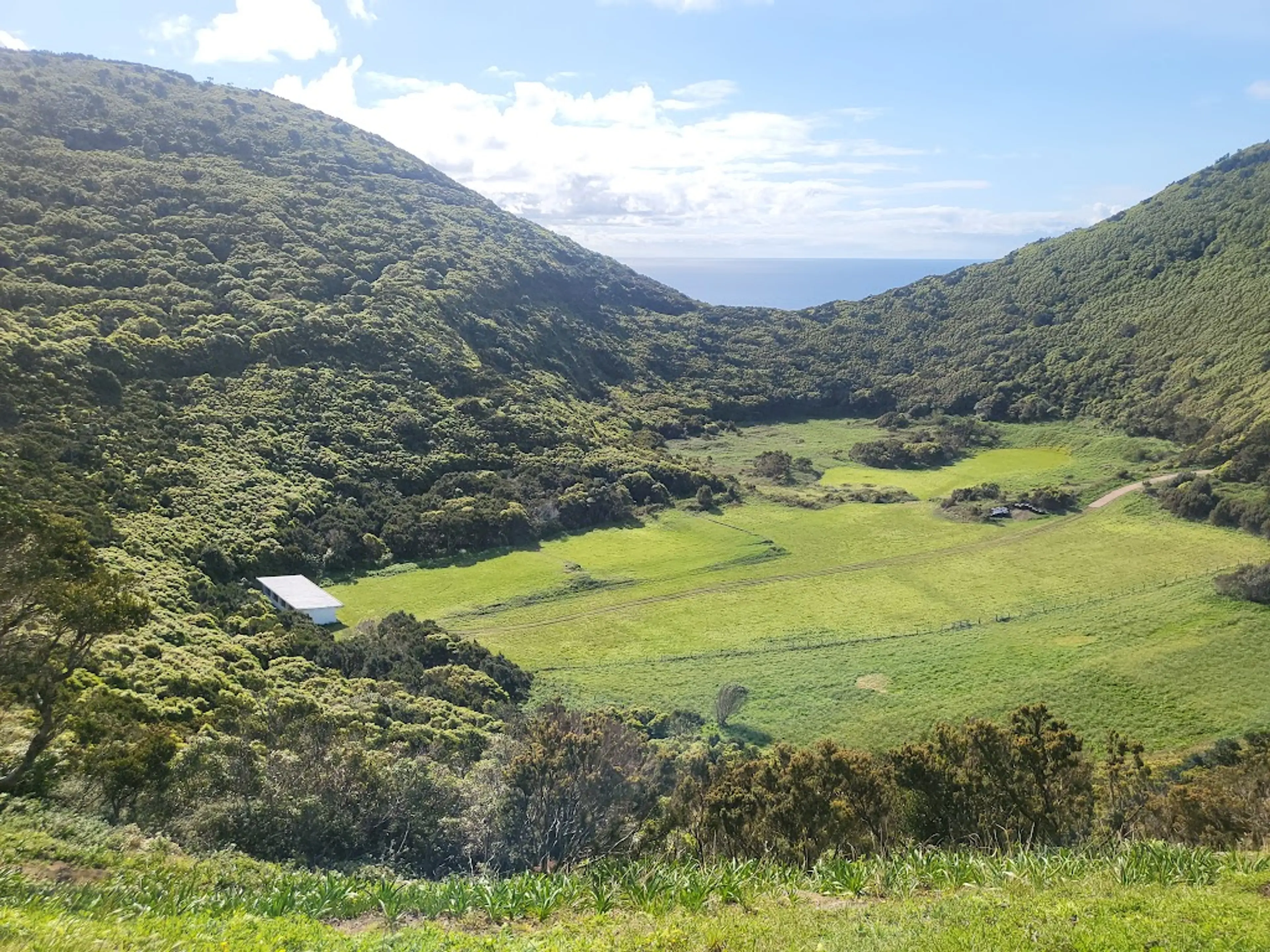
13Monte Brasil nature reserve
A nature reserve offering hiking, bird watching, and stunning views of Angra do Heroismo.
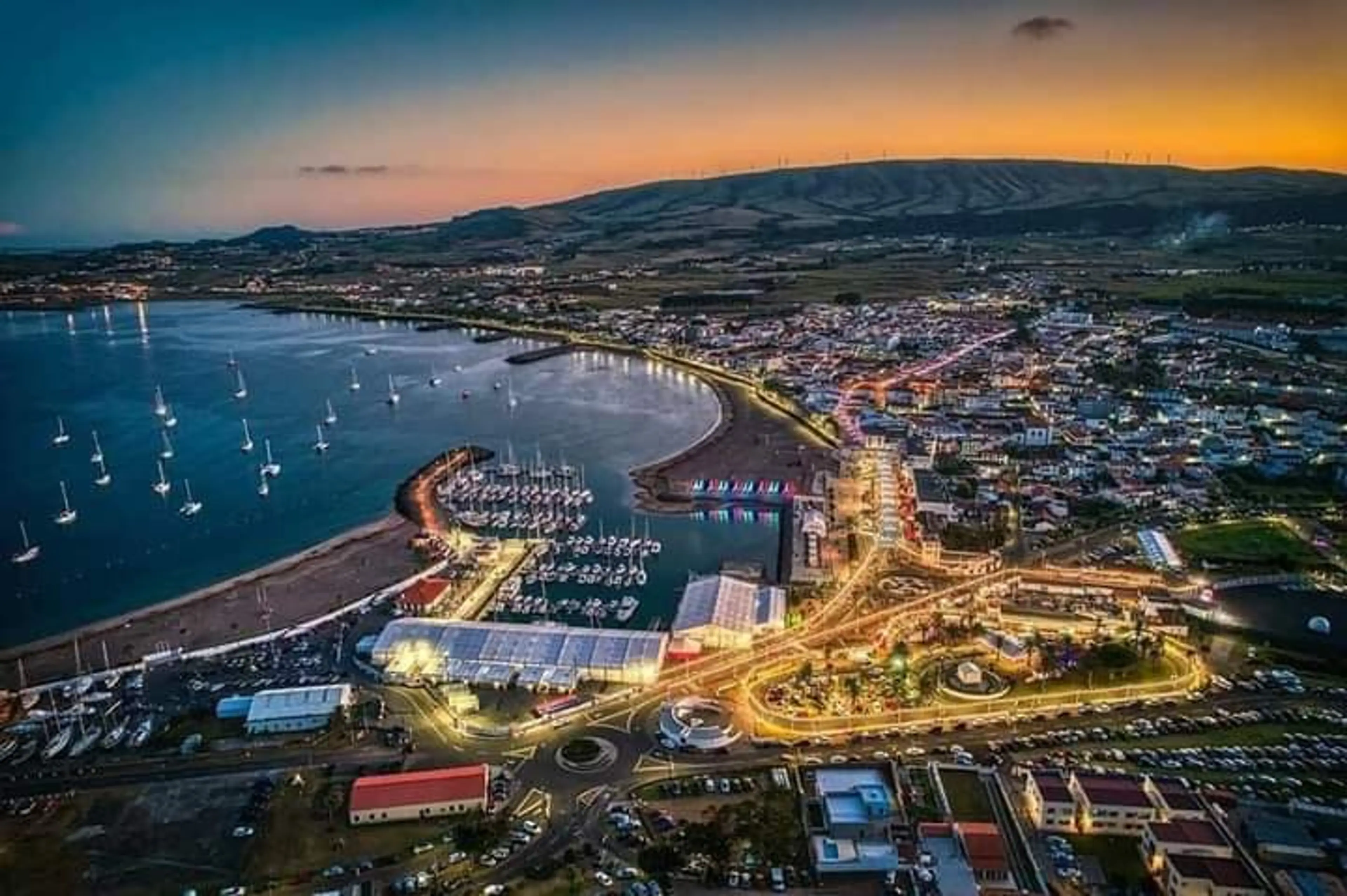
14Praia da Vitoria
A beautiful sandy beach with clear waters, perfect for swimming and sunbathing.
Local Food and Drinks (12)

Alcatra
A traditional Azorean dish made from beef or fish cooked slowly in a clay pot with spices, wine, and garlic. It's a must-try for its unique flavor and its importance in Azorean cuisine.

Queijo São Jorge
A hard cheese made on the island of São Jorge. It's known for its spicy and intense flavor, making it a staple in the Azorean diet.
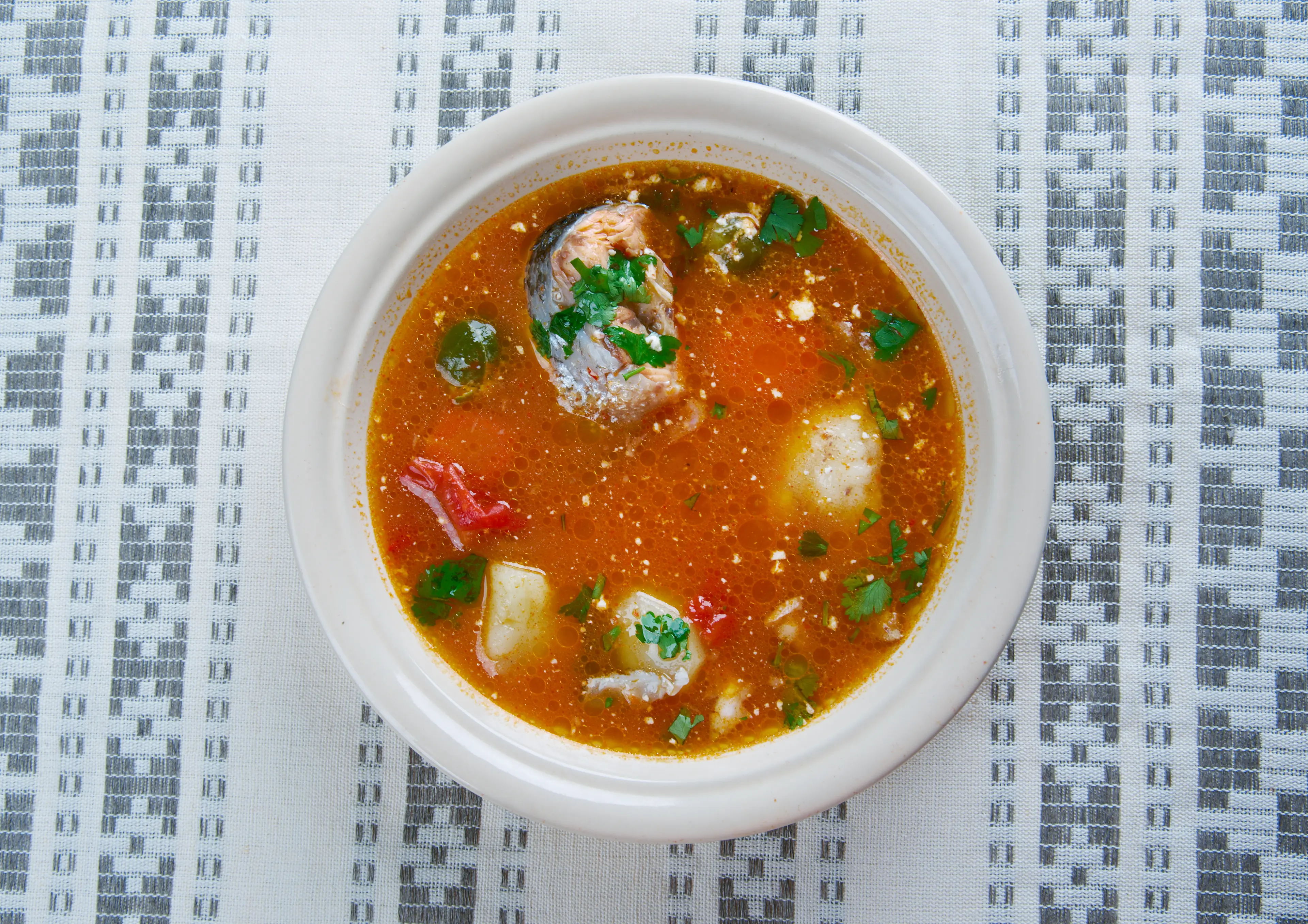
Caldo de Peixe
A traditional Azorean fish soup made with a variety of local fish and shellfish, potatoes, and vegetables. It's a popular dish among locals and tourists alike for its fresh and hearty taste.
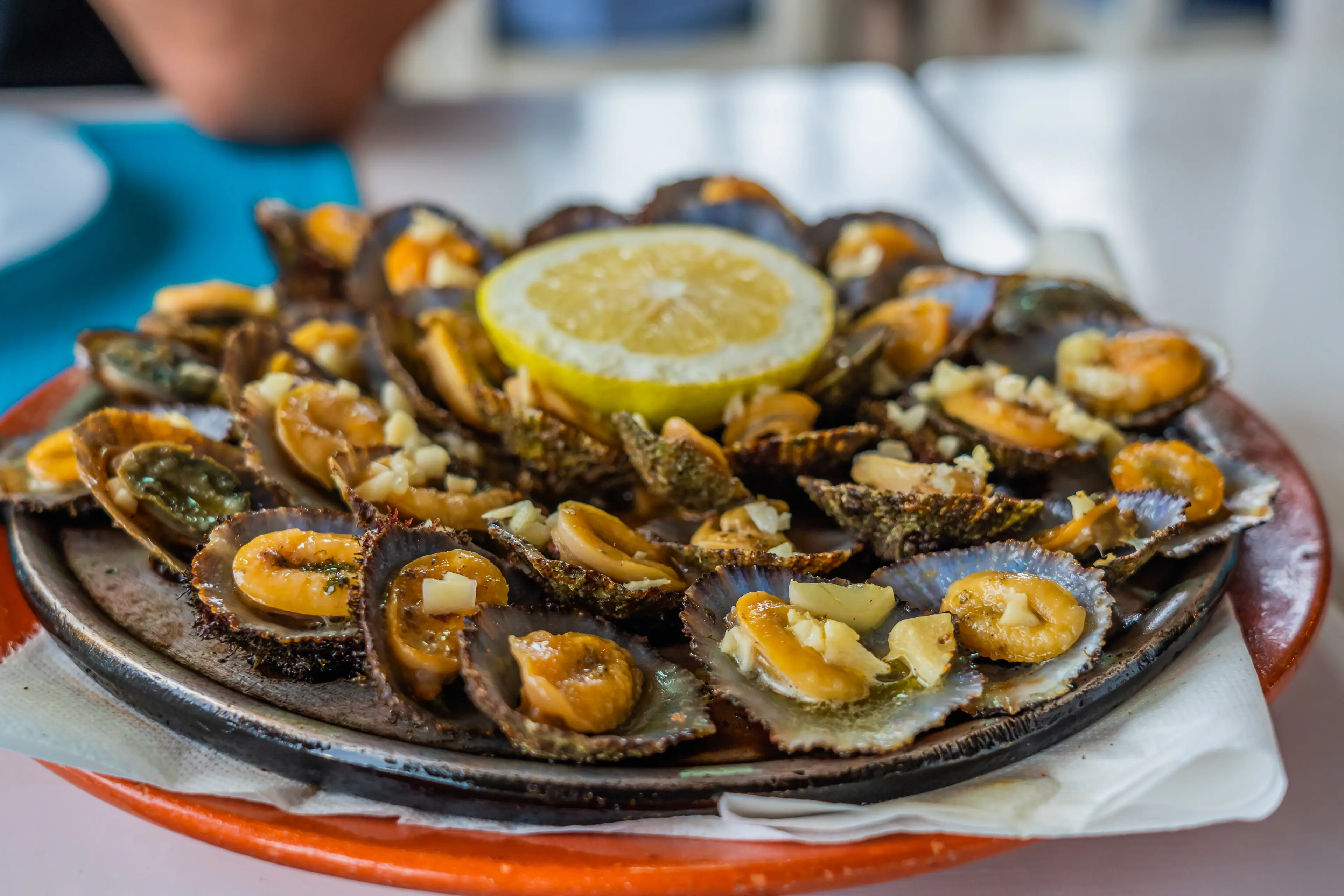
Lapas Grelhadas
Grilled limpets, a type of sea snail, is a common dish in the Azores. They are typically served with a garlic and butter sauce, offering a taste of the Atlantic Ocean.

Bolo Lêvedo
A sweet, pancake-like bread that is a staple in Azorean breakfasts. It's often served with butter or jam, and is a great way to start the day in the Azores.
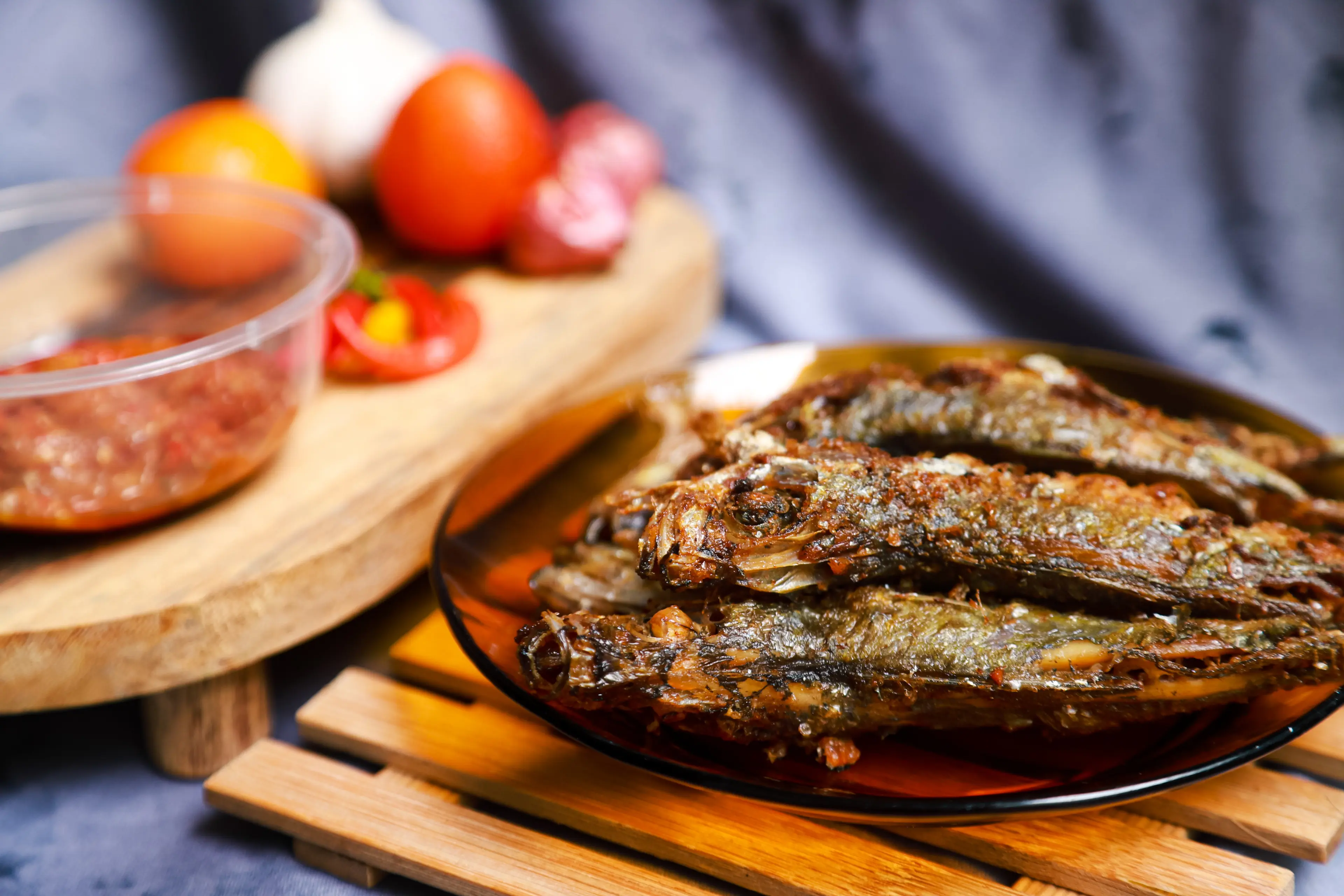
Chicharros com Molho de Vilão
A traditional Azorean dish made with horse mackerel and a sauce made from vinegar, peppers, and onions. It's a popular dish for its tangy and savory flavors.

Morcela da Beira
A blood sausage made with pork, blood, onions, and spices. It's a traditional Azorean dish that is often served as a starter or part of a main course.

Arroz Doce
A sweet rice pudding that is a common dessert in the Azores. It's typically flavored with lemon and cinnamon, offering a sweet end to any meal.
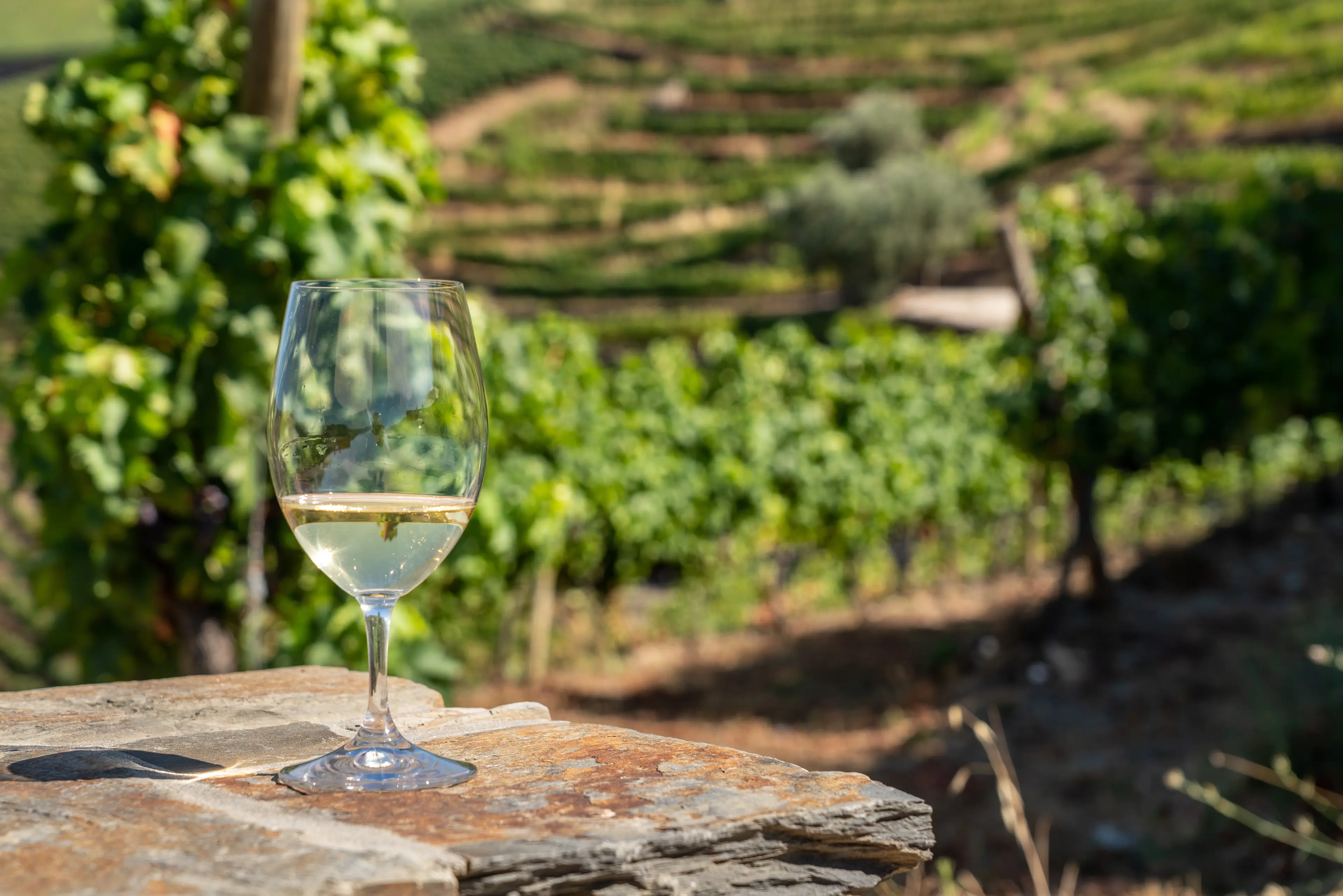
Vinho Verdelho
A white wine made from the Verdelho grape, which is grown on the islands of the Azores. It's known for its crisp and fruity flavor, making it a popular choice for wine lovers.
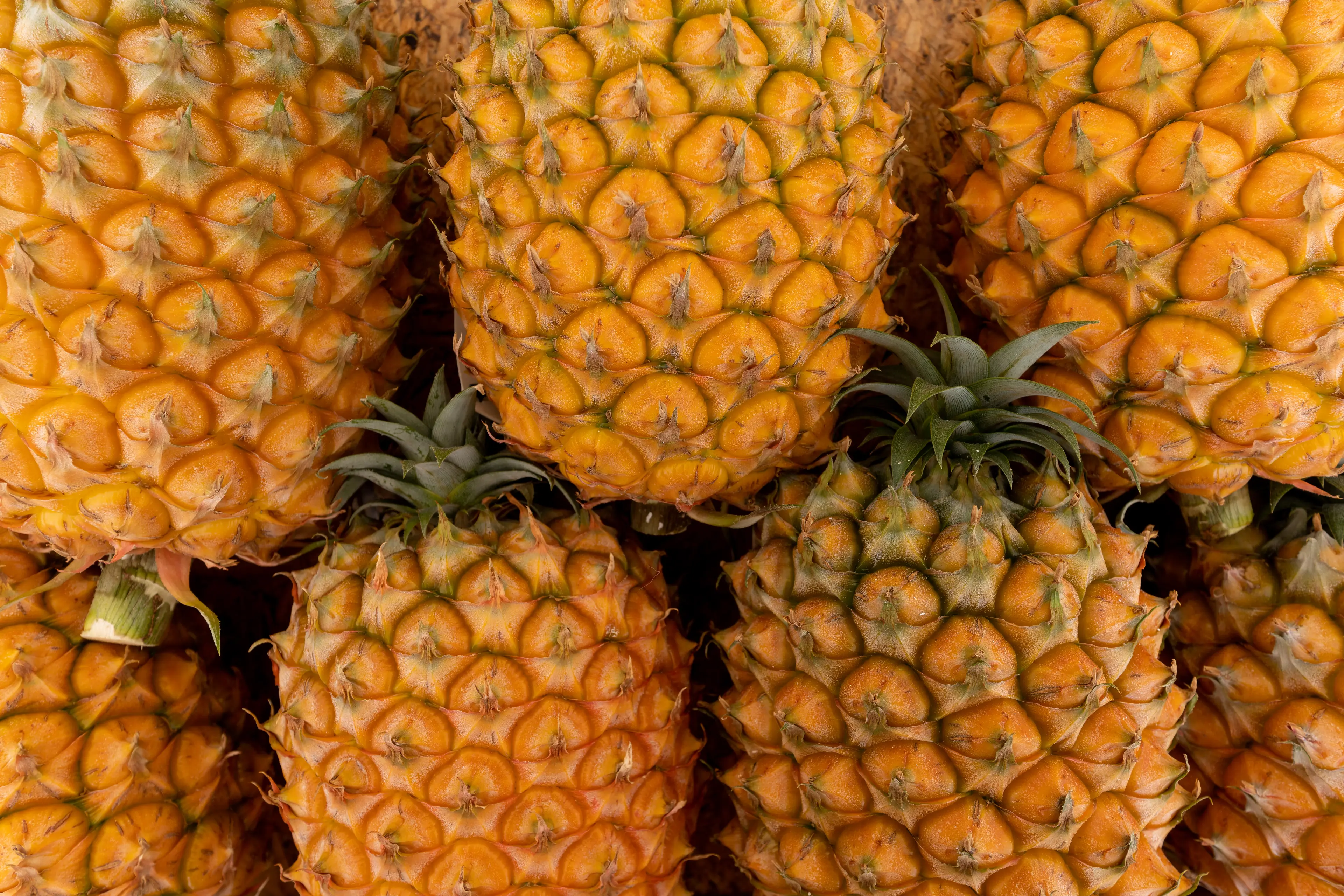
Ananás dos Açores
Azores is famous for its pineapples, which are grown in greenhouses. They are known for their sweet and slightly acidic flavor, making them a popular snack or dessert.

Passas de Figo
Dried figs are a popular snack in the Azores. They are often served with cheese or used in baking, offering a sweet and chewy treat.
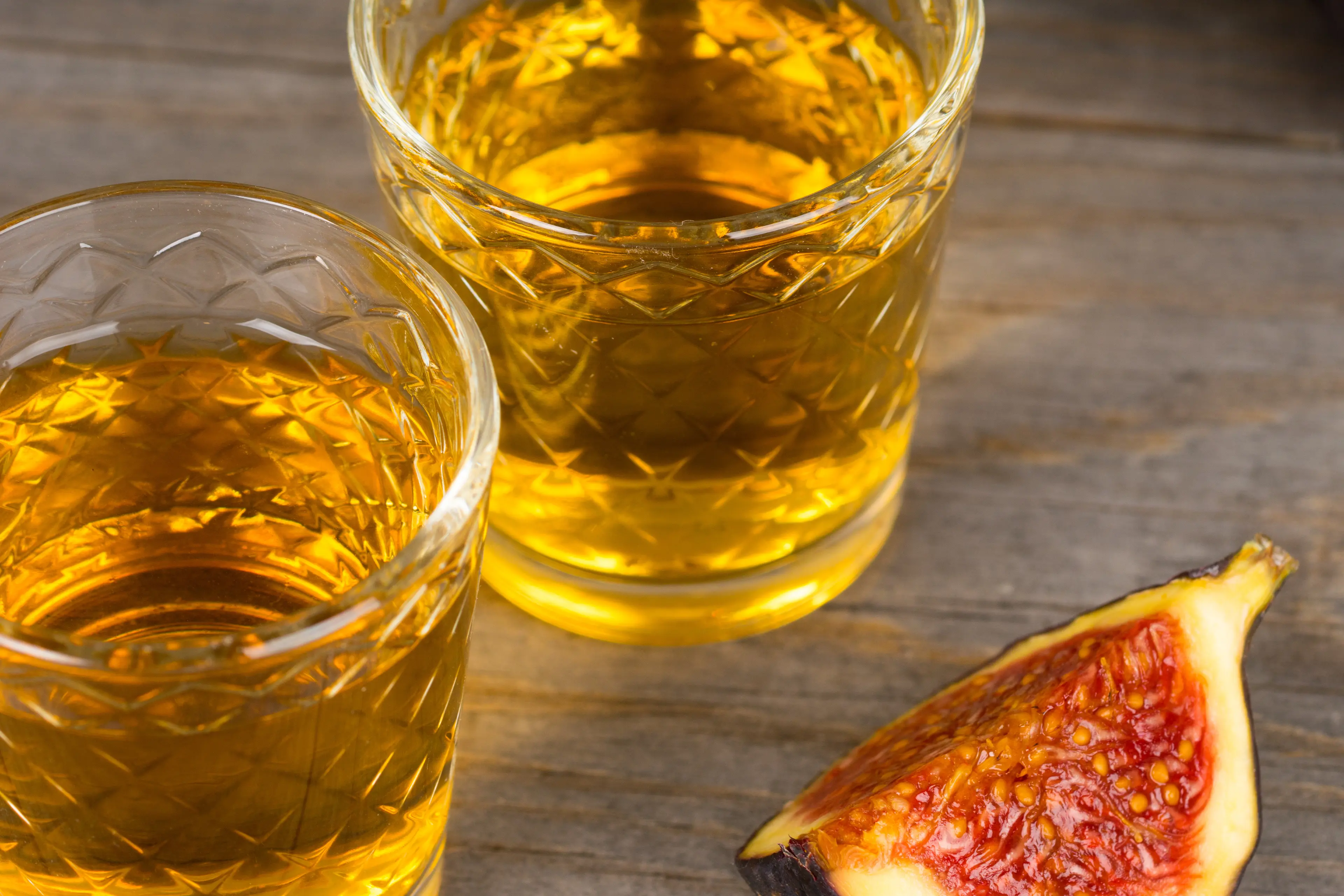
Aguardente de Figo
A traditional Azorean liquor made from figs. It's known for its strong and sweet flavor, making it a popular after-dinner drink.
Best time to visit
The best time to visit Azores, Portugal is typically between June and September. During these months, you can expect warm temperatures, minimal rainfall, and plenty of sunshine. This is also the peak season for whale and dolphin watching, one of the main attractions in the Azores. However, if you prefer a quieter vacation, the shoulder seasons of April-May and October-November are also great times to visit, with mild weather and fewer tourists.
How to get around
Air Travel
The Azores are an archipelago of nine islands, and the quickest way to travel between them is by air. SATA Air Açores operates regular flights between the islands.
Car Rental
Renting a car is a convenient way to explore each island at your own pace. Most islands have car rental agencies, and you can book in advance online or upon arrival. Remember to bring your driver's license.
Public Buses
Each island has a network of public buses that connect the main towns and attractions. However, services can be infrequent and may not align with your travel schedule.
Ferries
Traveling by ferry is a slower but more scenic way to hop between the islands. Atlanticoline operates regular services during the summer months, with a reduced schedule in the winter.
Taxi
Taxis are available on all islands and can be a convenient way to get around, especially for shorter distances. They can be hailed on the street or booked in advance.
Ridesharing
Ridesharing services are not widely available in the Azores. However, you may find local rideshare groups on social media platforms where locals and visitors arrange shared journeys.
Bicycle Rental
For the active traveler, renting a bicycle can be a great way to explore the islands' natural beauty. Many towns have bicycle rental shops, and some hotels also offer this service to their guests.
Hiking
The Azores are renowned for their stunning hiking trails. Walking is a wonderful way to immerse yourself in the islands' landscapes, from volcanic craters to lush forests and rugged coastlines.
Scooter Rental
Renting a scooter can be a fun and efficient way to get around, especially on the smaller islands. You'll need a valid driver's license, and it's recommended to book in advance during the busy summer months.
Important information
Currency€ EUR
Time zoneUTC 0
Driving sideRight
Emergency phone112
Drinking waterYes
Power sockets
Voltage230 V
Things to know about Azores, Portugal as a first time visitor
1
The Azores is an autonomous region of Portugal, but it has its own distinct culture and traditions.
2
The official language is Portuguese, but English is widely spoken in tourist areas.
3
The currency used is the Euro (€). Credit cards are widely accepted, but it's always a good idea to carry some cash.
4
The Azores has a maritime temperate climate. Summers (June to September) are warm with temperatures ranging from 70-80°F (21-27°C). Winters (December to February) are mild with temperatures ranging from 50-60°F (10-15°C).
5
The Azores is a year-round destination. However, the best time to visit is during the summer months when the weather is most favorable.
6
The Azores is in the Western European Time Zone (WET, GMT +0). During daylight saving time, it follows Western European Summer Time (WEST, GMT +1).
7
The Azores is made up of nine islands. Each island has its own unique character and attractions.
8
Public transportation is available but not very frequent. Renting a car is the best way to explore the islands.
9
The Azores is known for its sustainable tourism. Visitors are encouraged to respect the environment and local customs.
10
The Azores has a low crime rate, but it's always a good idea to take basic precautions like not leaving valuables unattended.
11
The tap water is safe to drink, but bottled water is widely available if preferred.
12
The Azores has a rich culinary scene. Seafood is a staple, and the region is known for its cheeses and wines.
13
The Azores has a VAT (Value Added Tax) rate of 18%. Non-EU tourists can claim a refund on departure for goods purchased within the last 3 months.
14
Healthcare facilities are good in the Azores. However, travel insurance is recommended for any unexpected medical expenses.
15
The Azores is a great destination for outdoor activities like hiking, bird watching, and whale watching.
16
The Azores is located in the mid-Atlantic and can be prone to sudden changes in weather. It's advisable to pack layers and waterproof clothing.
17
The Azores has a slower pace of life compared to mainland Portugal. Embrace the laid-back lifestyle and take time to enjoy the natural beauty.
18
The Azores has a strong connection to the sea. Respect marine life and avoid disturbing wildlife during water activities.
19
The Azores has a mix of sandy and rocky beaches. Always check the conditions before swimming as currents can be strong.
20
The Azores is in a seismic active zone, earthquakes and volcanic activity are possible, but they are monitored closely by authorities.
Basic Portuguese to know as a first time visitor
English phrase | Native phrase | Pronunciation | When to use it |
|---|---|---|---|
Hello | Olá | O-la | Greeting someone |
Goodbye | Adeus | Ad-ey-oosh | Leaving or saying goodbye to someone |
Please | Por favor | Por fa-vor | When asking for something |
Thank you | Obrigado | Ob-ri-ga-doo | After receiving something or someone's help |
Yes | Sim | Seem | Agreeing with someone or something |
No | Não | Nown | Disagreeing with someone or something |
Excuse me | Desculpe | Desh-kool-pe | Getting someone's attention or apologizing |
I'm sorry | Lamento | La-men-to | Apologizing |
Do you speak English? | Fala inglês? | Fala in-glesh? | When you need to communicate in English |
I don't understand | Não entendo | Nown en-ten-doo | When you don't understand what's being said |
Where is the bathroom? | Onde está o banheiro? | Onde es-ta o ba-ney-ro? | When you need to use the restroom |
How much does it cost? | Quanto custa? | Kwan-to kus-ta? | When you want to know the price of something |
I would like... | Eu gostaria... | Ey-oo go-sta-ria | When you want to order something |
Help | Ajuda | A-ju-da | In case of emergency |
Can I have the menu, please? | Posso ter o menu, por favor? | Pos-so ter o me-nu, por fa-vor? | When you want to see the menu at a restaurant |
Water | Água | A-gwa | When you want to order water |
Beer | Cerveja | Ser-ve-ja | When you want to order beer |
Wine | Vinho | Vin-yo | When you want to order wine |
Cheers | Saúde | Sau-de | When toasting |
Good night | Boa noite | Bo-a noi-te | When leaving or going to bed in the evening |
Packing List
Clothing
Lightweight clothing for layering
Waterproof jacket
Swimwear
Comfortable walking shoes
Socks and underwear
Sunglasses
Hat for sun protection
Scarf or bandana
Toiletries
Travel-sized shampoo and conditioner
Body wash or soap
Toothbrush and toothpaste
Deodorant
Razor and shaving cream
Sunscreen
Insect repellent
First-aid kit
Prescription medications
Contact lenses and solution (if needed)
Travel documents and essentials
Passport
Driver's license or ID card
Credit and debit cards
Cash in local currency
Travel insurance documents
Hotel and car rental reservations
Emergency contact information
Electronics and gadgets
Smartphone
Charger for smartphone
Universal power adapter
Camera
Memory cards for camera
Portable power bank
Headphones or earbuds
Miscellaneous items
Travel guidebook for Azores
Snacks for travel
Reusable water bottle
Travel pillow and blanket
Earplugs and eye mask
Umbrella
Ziplock bags for keeping items dry
Tote or daypack for daily excursions
Weather Conditions
The Azores, Portugal, is a beautiful destination known for its mild and temperate climate. The weather can be unpredictable, so it's essential to be prepared for various conditions. The average temperature in the Azores ranges from 57°F (14°C) in the winter to 77°F (25°C) in the summer. However, sudden changes can occur, so it's advisable to pack layers. A light jacket or sweater is recommended for cooler evenings or sudden rain showers. Rain is quite common in the Azores, especially during the winter months. Therefore, it's a good idea to pack a waterproof jacket or an umbrella. Despite the rain, the Azores are often sunny, so don't forget your sunscreen, sunglasses, and a hat. The Azores are also known for their strong winds, especially in the coastal areas. If you plan on participating in water sports or boat trips, check the local weather forecast for wind conditions. It's also recommended to secure any loose items if you're staying in a coastal area. The sea temperature in the Azores is relatively stable, ranging from 60°F (16°C) in the winter to 75°F (24°C) in the summer. If you're planning on swimming, snorkeling, or diving, a wetsuit might be necessary, especially during the cooler months. Overall, the key to enjoying your visit to the Azores is to be prepared for a variety of weather conditions. Despite the occasional rain shower or windy day, the Azores' beautiful landscapes and mild temperatures make it a fantastic destination year-round.
| Month | Hi / Lo (°C) | Weather Overview |
|---|---|---|
January | 17° / 11° | January is the coldest month in Azores, but it's still relatively mild with occasional rain showers. |
February | 17° / 11° | February is similar to January, with mild temperatures and a chance of rain. |
March | 18° / 12° | In March, the weather starts to warm up slightly, but there is still a chance of rain. |
April | 19° / 13° | April sees a slight increase in temperature, with more sunny days but still a chance of occasional showers. |
May | 21° / 15° | May marks the beginning of the warmer season in Azores, with more sunshine and less rain. |
June | 24° / 18° | June is a great month to visit Azores, with warm temperatures and plenty of sunshine. |
July | 26° / 20° | July is one of the hottest months in Azores, perfect for beach activities and exploring the islands. |
August | 27° / 21° | August is the peak of summer in Azores, with hot temperatures and lots of sunshine. |
September | 26° / 20° | September is slightly cooler than August, but still warm enough for outdoor activities. |
October | 24° / 18° | In October, the weather starts to cool down, but it's still pleasant with a moderate amount of rain. |
November | 21° / 15° | November sees a further drop in temperature, with more frequent rain showers. |
December | 19° / 13° | December is a mild winter month in Azores, with cooler temperatures and a higher chance of rain. |
Did you know?
Places near by Azores, Portugal
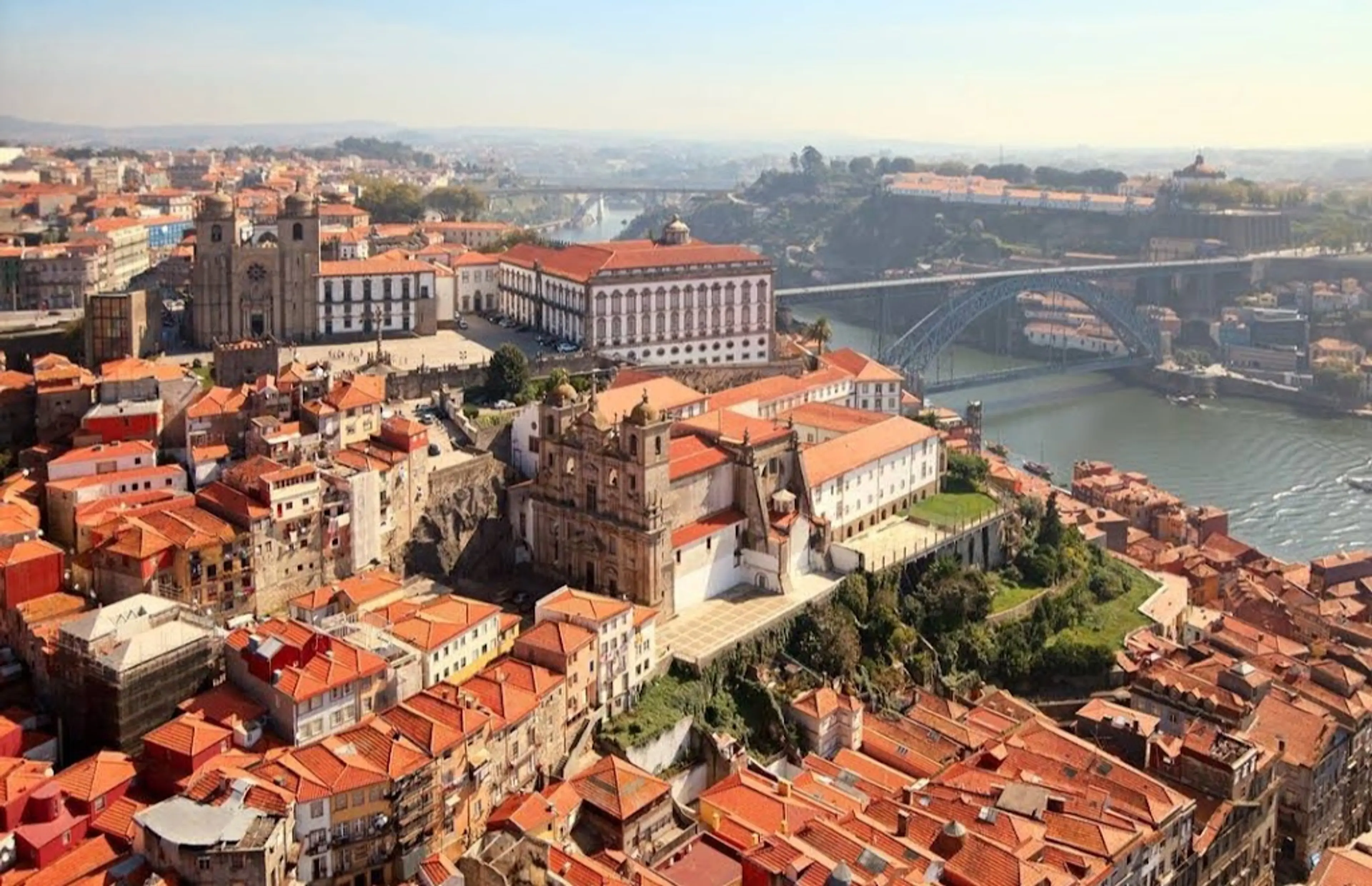
Porto
A vibrant city known for its stately bridges and port wine production. It's also home to the stunning Livraria Lello, one of the world's most beautiful bookstores.

Lisbon
The hilly, coastal capital city of Portugal known for its cafe culture and soulful Fado music. Visit the historic Belem Tower and Jeronimos Monastery.

Madeira
An archipelago comprising 4 islands off the northwest coast of Africa. Known for its namesake wine and warm, subtropical climate.

Algarve
The southernmost region of continental Portugal, known for its Mediterranean beaches and golf resorts.

Coimbra
A riverfront city in central Portugal and the country’s former capital. Home to a preserved medieval old town and the historic University of Coimbra.

Sintra
A resort town in the foothills of Portugal’s Sintra Mountains, near the capital, Lisbon. Known for its many 19th-century Romantic architectural monuments.

Evora
A small city in southern Portugal known for its well-preserved old town center, still partially enclosed by medieval walls.